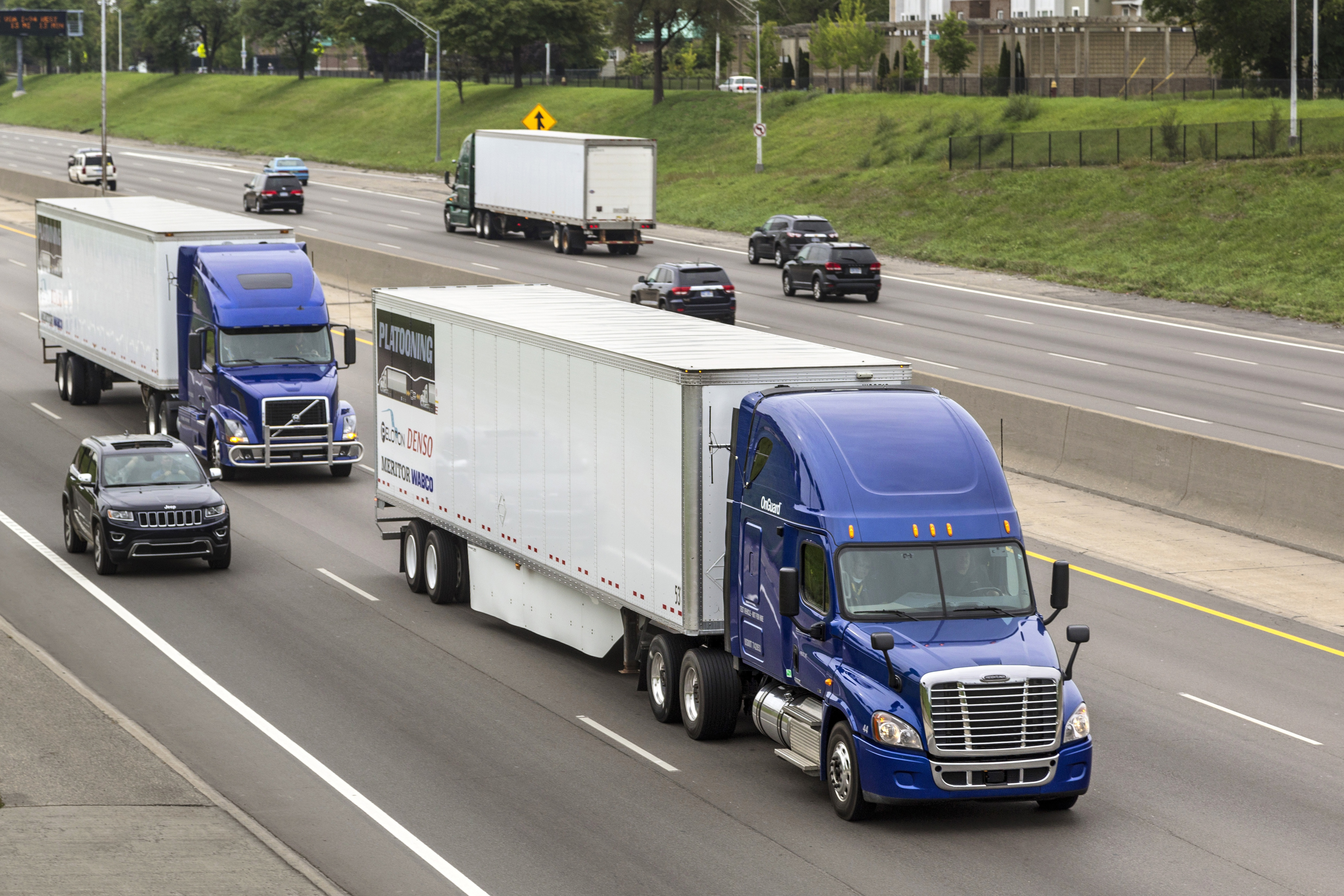Similar to the driverless cars being developed by Google and others, self-driving trucks would use sophisticated computers and GPS technology to navigate roadways. Within a decade, the technology is likely to be applied in semi-autonomous truck convoys, or ‘platoons’, in which trucks equipped with self-driving technology would be programmed to follow human-piloted trucks, according to Craig Shankwitz, a senior research engineer in WTI’s Connected Vehicle Initiative.
Shankwitz is leading the new program, the Collaborative Human-Automated Platooned Trucks Alliance (CHAPTA), which will use a driving simulator at WTI to provide truck drivers with a realistic experience of using the driverless technology in a platoon setting, while allowing WTI researchers to test variables such as the spacing distance between truck units.
The project will also use WTI’s TRANSCEND test track in Lewistown, consisting of four miles of highway-like, closed-circuit roadway, which will allow WTI researchers to test actual semi-autonomous truck platoons in a controlled environment under a variety of weather conditions.
“Through the proper interaction of humans and autonomous systems, both safety and operational costs could be improved,” said Shankwitz, who is leading.
Given the rapid development of driverless technology, CHAPTA fills a need for a research and testing forum that works collaboratively with the trucking industry, regulators, law enforcement and others to ensure that the technology is safely and effectively applied, Shankwitz said.
US university launches program to study safe integration of semi-autonomous trucks
The Western Transportation Institute (WTI) at Montana State University is launching a program to study how to safely integrate driverless technology into the US trucking fleet. Similar to the driverless cars being developed by Google and others, self-driving trucks would use sophisticated computers and GPS technology to navigate roadways. Within a decade, the technology is likely to be applied in semi-autonomous truck convoys, or ‘platoons’, in which trucks equipped with self-driving technology would be pro
The Western Transportation Institute (WTI) at Montana State University is launching a program to study how to safely integrate driverless technology into the US trucking fleet.









